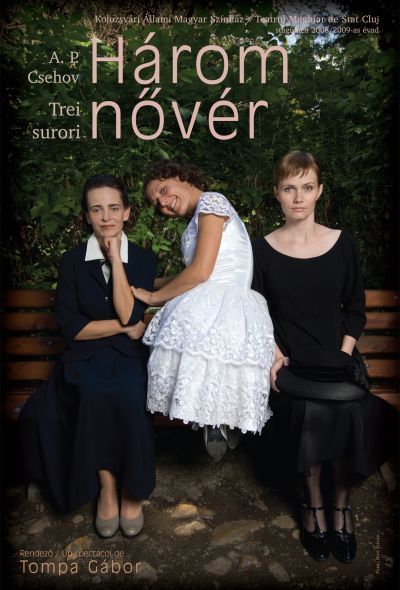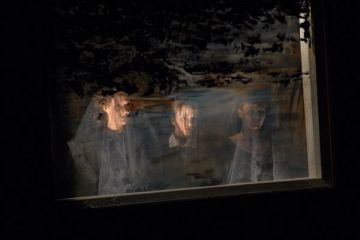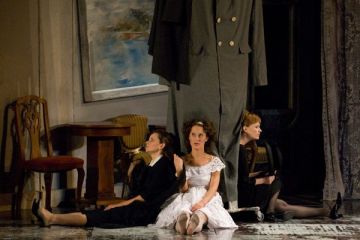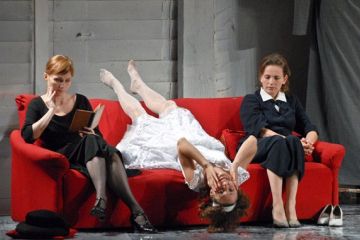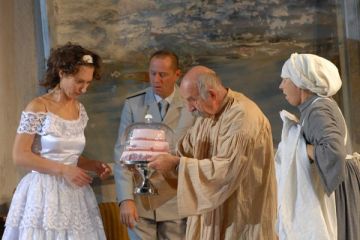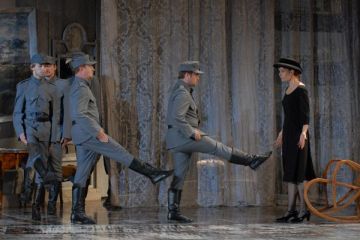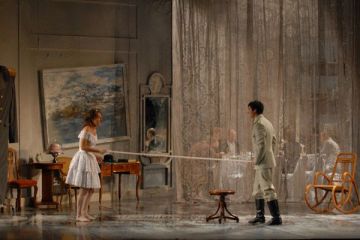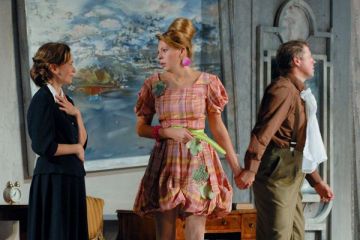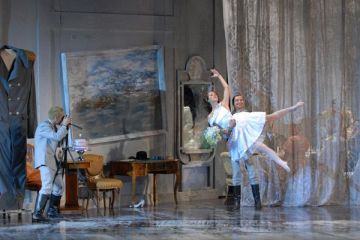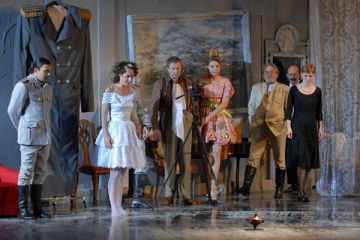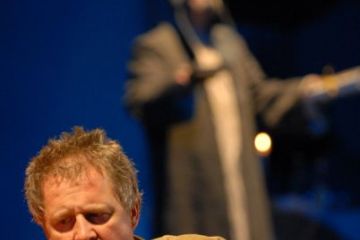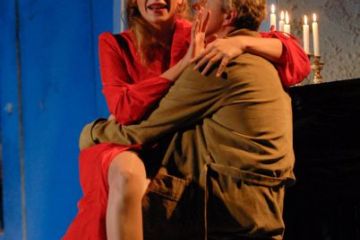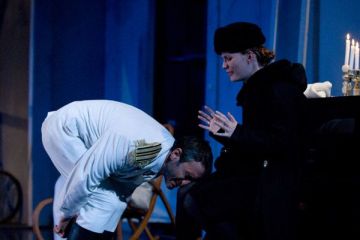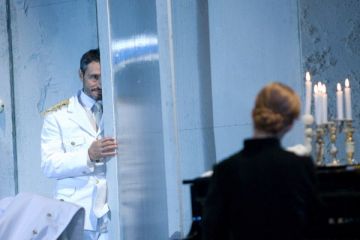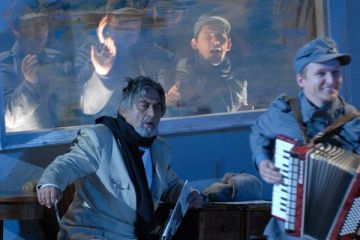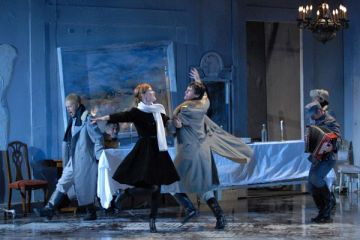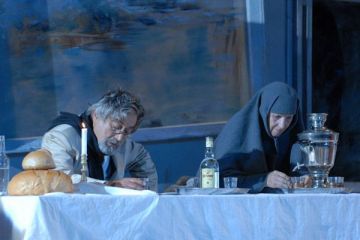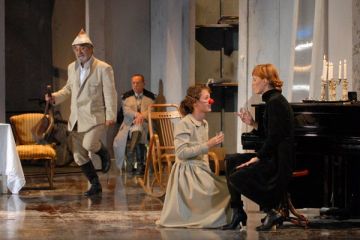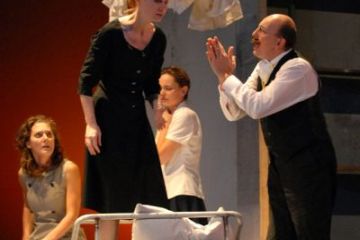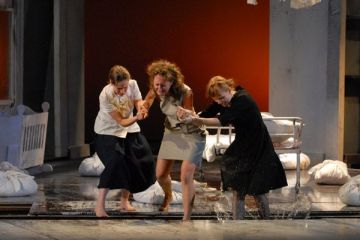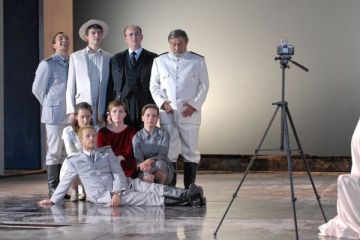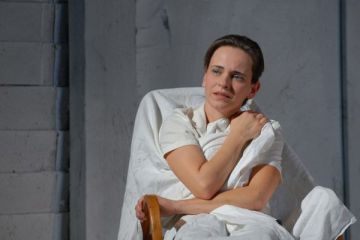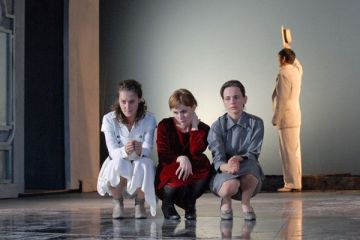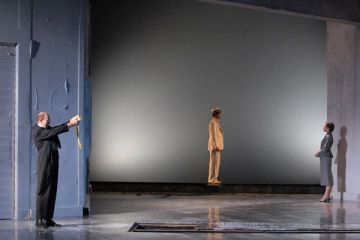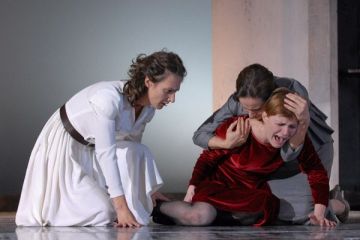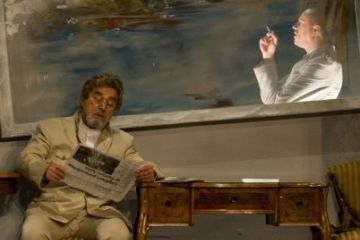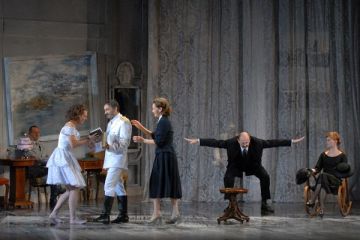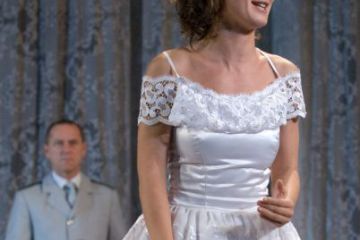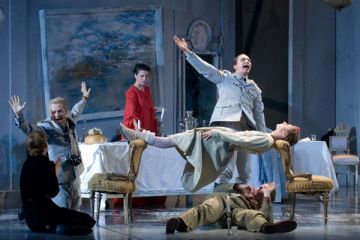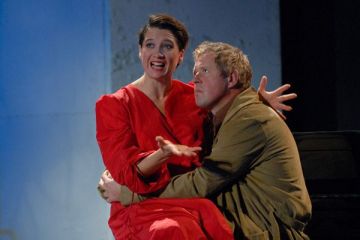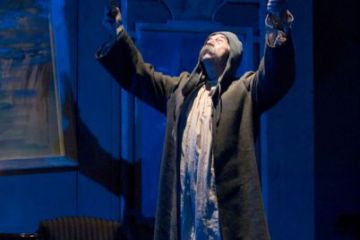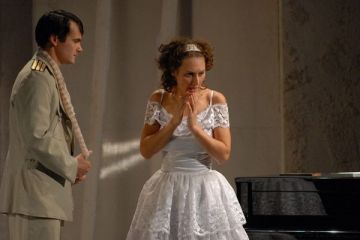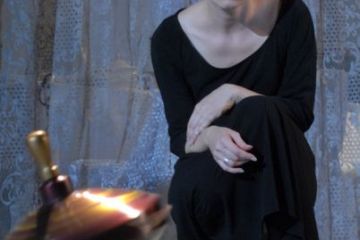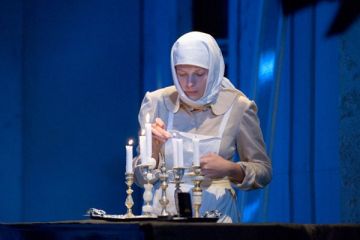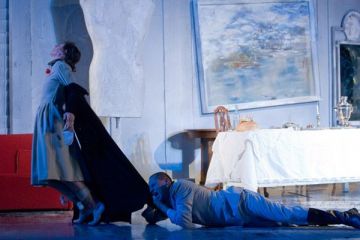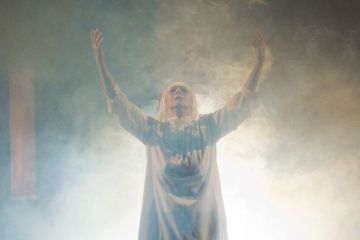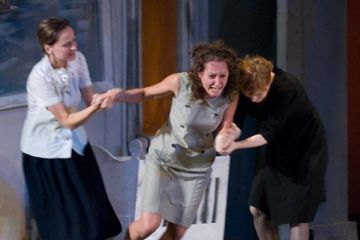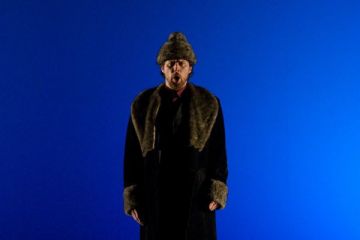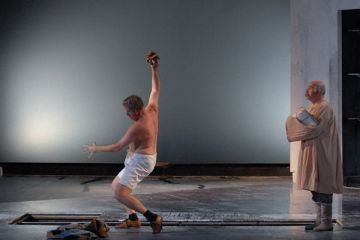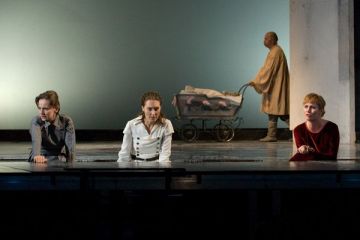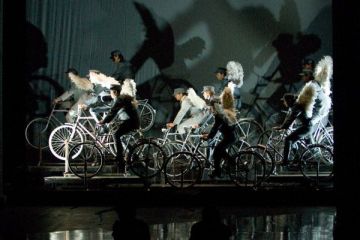Three Sisters
Main stage
András Hatházi
Tünde Skovrán / Enikő Györgyjakab
Andrea Kali
Imola Kézdi
Hilda Péter
Attila Orbán
Zsolt Bogdán
Balázs Bodolai
József Bíró
Iván Dengyel
Levente Molnár
Ferenc Sinkó
György Barkó
Ágnes Kakuts
Enikő Györgyjakab / Tünde Skovrán
Ervin Szűcs
Musicians, soldiers, firemen:
Szabolcs Balla, András Buzási, Ernő Galló, Alpár Fogarasi, Róbert Laczkó Vass, Loránd Farkas, István Albu, Csongor Köllő
directed by
Gábor Tompa
András Visky
András Both
Carmencita Brojboiu
Rahmaninov, Shostakovich, Şirli
Eszter Biró
Levente Borsos
Imola Kerezsy
“Three Sisters is important for me as a play about redemption. In fact, it is the sacred level of the drama that interests me. The three sisters are actually three projections of the same woman: the child, the woman and the mother who have to stay together in order to survive. The Father’s ghost floats around them; they cannot escape from him and they don’t want to. The Son also appears as the sisters, at the beginning of the play, experience the arrival of Vershinin in an almost messianic way. In him they see the saviour, the embodiment of Moscow. Finally, the Holy Spirit is also present, identifiable in the consolation arising from the ‘solemnity of weeping,’ the suffering which the characters have to embrace, each in their different ways. I am also attracted by the musicality of Three Sisters, which connects it to the absurd plays which I like so much. This musicality, like any other symphonically structured work, demands a high precision and an accuracy of tone, colour, atmosphere, shading and an intense spiritual identification.” Gábor Tompa
Opening date: September 24, 2008.
Running time: 2 hours and 40 minutes with one intermission.
Not recommended for viewers under the age of 14.
The performance received the Awards for Best Performance of the Year 2008 and Best Direction of the Year (Gábor Tompa) by the UNITER (Romanian Theatre Union).
Press review









